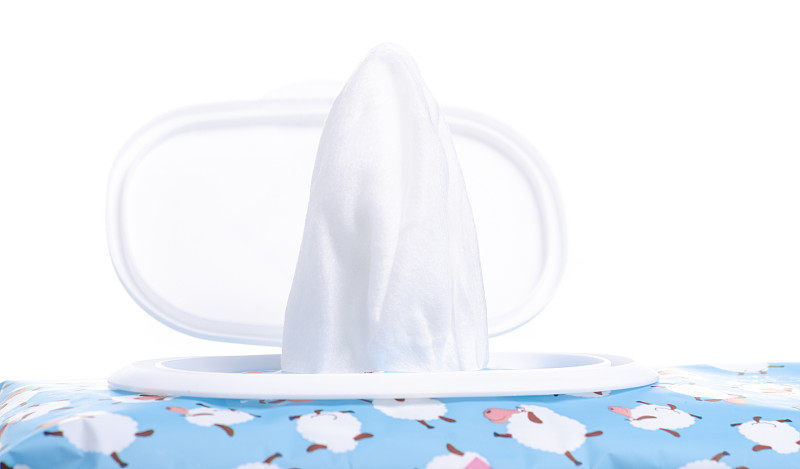
Cómo se fabrican las toallitas húmedas de principio a fin
marzo 19, 2024
Presentar el impacto: necesidad del tratamiento del agua en la producción de toallitas húmedas
abril 3, 2024In a world where environmental consciousness is rapidly gaining momentum, the quest for sustainable alternatives to everyday products has become more pressing than ever. Amidst the array of eco-friendly options, bamboo wipes have emerged as a popular choice for the mindful consumer. But here's the burning question that has piqued the curiosity of many: Are bamboo wipes truly biodegradable? As we delve into the intricate realm of sustainable living, the allure of bamboo wipes as a biodegradable solution sparks both interest and skepticism. Beyond their organic origins and natural appeal, a closer examination is warranted to uncover the veracity behind the biodegradability claims. Join us on an enlightening journey as we navigate through the labyrinth of eco-friendly choices and unravel the enigma surrounding bamboo wipes' environmental impact. Let's embark together on a quest for truth, shedding light on whether these seemingly eco-conscious wipes truly align with our planet's needs.

The Rise of Bamboo Wipes in the Eco-Friendly Market
Bamboo wipes have gained significant popularity in the eco-friendly market in recent years. As consumers become more conscious of their environmental impact, they are actively seeking sustainable alternatives to traditional products. Bamboo wipes offer a compelling solution due to their biodegradable nature and eco-friendly production process.
Unlike conventional wipes that are often made from synthetic materials like polyester or plastic, bamboo wipes are derived from natural bamboo fibers. Bamboo is a highly renewable resource that grows quickly and requires minimal water and pesticides. This makes it an ideal choice for those looking to reduce their carbon footprint.
Furthermore, the production of bamboo wipes involves fewer chemicals compared to traditional wipes. The fibers are typically processed using mechanical methods rather than harsh chemical treatments, further reducing the environmental impact.
Understanding Biodegradability: What Does It Truly Mean?
Before delving into whether bamboo wipes are truly biodegradable, it's important to understand what biodegradability entails. Biodegradation refers to the breakdown of organic materials by microorganisms such as bacteria or fungi. When a product is biodegradable, it can naturally decompose over time without leaving behind harmful residues or contributing to pollution.
In the case of bamboo wipes, their biodegradability stems from the fact that they are made from natural bamboo fibers. These fibers can break down naturally in various environments, including composting facilities or soil. However, it's crucial to note that not all bamboo wipes on the market may be equally biodegradable.
Decoding the Composition of Bamboo Wipes
To determine whether bamboo wipes are truly biodegradable, it's essential to examine their composition. Most bamboo wipes consist primarily of natural bamboo fibers blended with other plant-based materials such as cotton or viscose. These additional materials may impact the overall biodegradability of the wipes.
When assessing the composition of bamboo wipes, it's important to look for certifications or labels that indicate their biodegradable properties. Some manufacturers may undergo third-party testing to verify the biodegradability of their products. These certifications provide consumers with assurance that the wipes will break down naturally without harming the environment.
Biodegradability Testing Methods for Wipes
Various testing methods are employed to determine the biodegradability of wipes, including those made from bamboo fibers. One commonly used method is ASTM D6400, which assesses the compostability of materials. This test evaluates how well a product breaks down in a controlled composting environment.
In addition to compostability tests, other methods focus on simulating real-world conditions such as soil burial or marine environments. These tests help determine whether bamboo wipes can effectively decompose in different settings and contribute to a healthier ecosystem.
Environmental Impact Beyond Biodegradability
While biodegradability is an essential aspect of sustainable products like bamboo wipes, it's crucial to consider their broader environmental impact. Biodegradable materials alone do not guarantee sustainability if other factors such as production processes or packaging contribute to environmental harm.
Bamboo wipes often boast a lower carbon footprint compared to conventional wipes due to their renewable source and minimal processing requirements. However, it's important for manufacturers to adopt sustainable practices throughout the entire production cycle, including responsible sourcing and efficient manufacturing processes.
Comparing Bamboo Wipes to Conventional Wipes: A Sustainability Analysis
A sustainability analysis can shed light on how bamboo wipes stack up against conventional wipes in terms of environmental impact. When comparing these two options, several factors come into play, including resource consumption, energy usage, and waste generation.
Conventional wipes, often made from non-biodegradable materials like polyester or plastic, contribute to the growing issue of plastic pollution. These wipes can take hundreds of years to decompose and may release harmful microplastics into the environment during their breakdown process.
In contrast, bamboo wipes offer a more sustainable alternative. Their biodegradability ensures that they can break down naturally without leaving behind harmful residues. Additionally, bamboo's rapid growth and minimal water requirements make it a more environmentally friendly choice compared to resource-intensive materials used in conventional wipes.
Addressing Common Myths and Misconceptions
Despite the growing popularity of bamboo wipes as an eco-friendly option, there are still some myths and misconceptions surrounding their biodegradability. One common misconception is that all bamboo wipes are automatically biodegradable. However, as mentioned earlier, it's essential to look for certifications or labels that confirm their biodegradable properties.
Another myth is that bamboo plantations used for producing wipes contribute to deforestation. In reality, bamboo is a highly sustainable crop that grows rapidly without the need for pesticides or fertilizers. Additionally, responsible manufacturers source their bamboo from certified sustainable plantations to ensure minimal environmental impact.
Disposal Practices: The Role of Consumers in Biodegradability
The proper disposal of bamboo wipes plays a crucial role in maximizing their biodegradability potential. While these wipes can break down naturally in composting facilities or soil environments, they may not fully decompose if disposed of incorrectly.
Consumers should follow recommended disposal practices provided by manufacturers or local waste management authorities. This may involve placing used bamboo wipes in designated compost bins or ensuring they are disposed of in an appropriate manner that allows for their natural breakdown.
Regulations and Certifications in the Biodegradable Wipes Industry
To ensure transparency and accountability in the biodegradable wipes industry, various regulations and certifications have been established. These certifications provide consumers with confidence that the products they purchase meet specific environmental standards.
One notable certification is the Biodegradable Products Institute (BPI) certification. This certification verifies that a product meets stringent criteria for biodegradability and compostability. Additionally, other certifications such as the European Norm (EN) standard or the OK Compost label offer further assurance of a product's eco-friendly attributes.
Conclusion: Navigating the Sustainable Choices Landscape
In conclusion, bamboo wipes can indeed be considered a biodegradable option in the eco-friendly market. Their composition of natural bamboo fibers and plant-based materials contributes to their ability to break down naturally without harming the environment.
However, it's important for consumers to look for certifications or labels that confirm a product's biodegradability. Additionally, considering other factors such as sustainable production practices and proper disposal methods can further enhance the overall sustainability of bamboo wipes.
As we navigate through the ever-expanding landscape of sustainable choices, it's crucial to stay informed and make conscious decisions that align with our planet's needs. By choosing biodegradable options like bamboo wipes, we can contribute to a greener future while enjoying the convenience these products offer.


